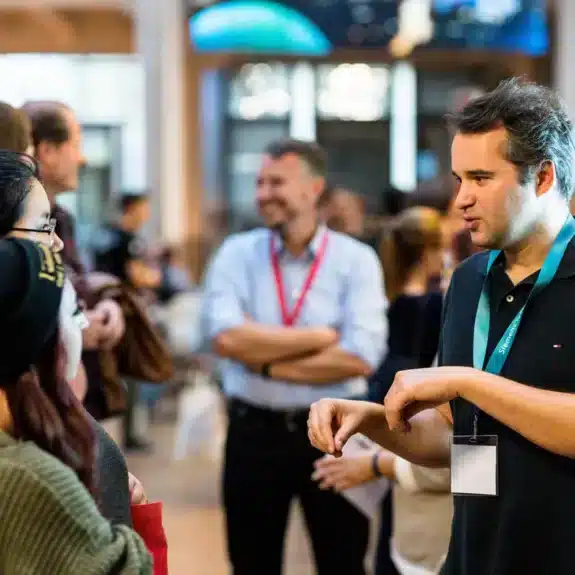Karlsruhe as a shaper of the future
Digital early learning
If you want to shape the (digital) future, you have to think about tomorrow’s skilled workers today. Among other things, this includes providing a sufficient number of daycare places to give working parents the best possible support – as well as a wide range of educational opportunities across all types of schools. But Karlsruhe goes one step further.
While calls for early digital education and compulsory lessons in subjects such as media skills and programming have been growing louder in politics and business for years, the Karlsruhe Technology Initiative has been inspiring young people to study mathematics, computer science, natural sciences and technology (STEM) since 2014. With working groups, robotics competitions, vacation offers and company visits, talent is discovered and promoted at an early stage. Technology and robotics clubs at 150 schools and institutions reach over 2,500 pupils every week.
It is therefore hardly surprising that three of the 41 schools across Germany that received awards in the Bitkom Smart School competition come from Karlsruhe. With the Ernst Reuter School, the fan-shaped city even has a community school where media education is an integral part of the teaching concept.
But the claim to be a STEM region is also clearly evident in the extracurricular area: CoderDojo Karlsruhe has taken up the cause of supporting young people interested in programming with a free offer. Every two weeks, volunteer mentors work with young people to program apps and websites or build robots. The Girls’ Digital Camps were launched in 2018 to attract more girls and young women to technical professions. As part of this pilot project, weekly Girls’ Digital Camps are held at secondary schools, particularly in grades 6 to 8. Due to the success of the project, the concept is currently being extended to the northern Black Forest region.
Meeting place for the digital industry
For many people who only have a few points of contact with digitalization in their everyday lives, topics such as artificial intelligence or robotics are not within reach. However, new technologies can only be successfully introduced if they are accepted by the people whose lives they are intended to improve. That is why it is important to let society take a look behind the scenes – and to shape the digital transformation together with it.
The Colourful Night of Digitalization, which took place for the first time in 2019, shows what this can look like. As part of the city-wide festival, almost 100 Karlsruhe companies, scientific institutions, cultural institutions, associations and municipal offices provided insights into the fascinating world in which the technology and IT of tomorrow is being developed. 6,000 visitors took part in the decentralized event and spent an entire evening exploring Karlsruhe’s digital ecosystem. Due to its success, the event format will be held regularly in future.
The InnovationFestival @karlsruhe.digital, initiated in 2020, takes a different approach. As a hybrid event, it offers a stage for digital innovations from the Karlsruhe region – on site and via livestream around the world. In top-class keynotes and entertaining keynote speeches, representatives from science, business, administration and culture present the extraordinary diversity of the digital location.
Meanwhile, the Karlsruhe digiTALK will focus on the exchange on digital society and net culture, while the gamification congress bizplay and the German-French AI conference AIxIA will shed light on two other important facets of digitalization. Karlsruhe is also home to LEARNTEC, Europe’s largest trade fair for digital education in schools, universities and the workplace. It attracts over 15,000 trade visitors from all over the world to Karlsruhe every year.
Anyone who wants to discuss the digital age in a relaxed atmosphere or simply make new contacts can do so at numerous after-work events – such as the regular netzstrategen Feierabend #nmfka.


